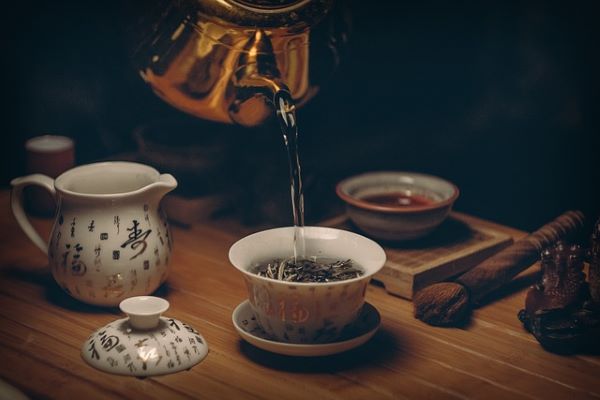Picture this: it’s a chilly evening, and you’re bundled up in your favorite blanket. The only thing missing? A warm cup of herbal tea. For the next 30 days, let’s embark on a journey of relaxation and warmth with evening herbal teas. Whether you’re a tea connoisseur or someone new to the game, you might find this simple ritual to be just what you need to wind down after a long day.
Also, read: Avoid Winter Sickness: 30 Days of Daily Vitamin C
Why Herbal Tea?
Herbal teas are like a warm hug in a cup. They’re caffeine-free (mostly), soothing, and packed with natural goodness. Unlike regular teas, herbal teas are made from dried fruits, flowers, herbs, and spices, offering a variety of health benefits.
You might wonder, Can a cup of tea really make that much of a difference? Research says yes. Studies published in journals like Phytomedicine highlight how certain herbal teas can reduce stress, improve digestion, and even promote better sleep. (Source)
The 30-Day Herbal Tea Plan
Starting a 30-day herbal tea habit is easier than you think. Here’s a simple guide:
Week 1: Focus on Relaxation
Start with teas like chamomile or lavender. These are known for their calming properties, helping you ease into a restful evening.
- Chamomile Tea: Studies suggest it can reduce anxiety and improve sleep quality.
- Lavender Tea: Known for its soothing aroma, it might just be the trick to melt away the day’s stress.
Week 2: Support Digestion
After a week of relaxation, shift to teas that aid digestion, especially after heavy meals.
- Peppermint Tea: A natural remedy for bloating and stomach discomfort.
- Ginger Tea: Perfect for warming you up and improving gut health.
Week 3: Boost Immunity
Midway through, it’s time to fortify your defenses with teas rich in antioxidants and vitamins.
- Elderberry Tea: Packed with immune-boosting properties.
- Rooibos Tea: High in antioxidants, it’s a delicious way to stay healthy.
Week 4: Indulge and Experiment
End your 30 days with fun, flavorful options that feel like a treat.
- Cinnamon Tea: Sweet and spicy, it’s great for stabilizing blood sugar.
- Hibiscus Tea: A tangy option that also helps manage blood pressure. (Source)
The Ritual of Tea
Herbal tea isn’t just about the drink; it’s about the experience. Setting aside 10–15 minutes every evening to brew and sip your tea can become a calming ritual.
Here’s what I do:
- Choose a cozy spot: Whether it’s by the window or your favorite chair, create a relaxing environment.
- Use your favorite mug: It might sound silly, but sipping from a mug you love adds to the experience.
- Unwind: Pair your tea with a book, some soft music, or even just silence.
You’ll find that this small act of self-care can make a big difference in how you feel at the end of the day. (Source)
The Science Behind Herbal Teas
Herbal teas have been used for centuries, but modern science is now backing up their benefits.
- Relaxation: Chamomile contains apigenin, a compound that binds to brain receptors and induces a calming effect.
- Digestion: Peppermint and ginger are known to relax the digestive muscles, reducing discomfort.
- Immunity: Elderberry and rooibos are packed with antioxidants that help fight off free radicals and keep your immune system strong.
A study in the Journal of Clinical Psychopharmacology even found that regular consumption of herbal teas can reduce cortisol levels—the stress hormone—over time. (Source)
My 30-Day Experience
To be honest, I wasn’t sure if I’d stick to the 30-day plan. I mean, how much difference can tea really make, right? But by the end of the first week, I noticed something: I was sleeping better.
By week two, my post-dinner bloating was almost gone (hello, peppermint tea!). And by the end of the month, I realized I looked forward to my evening tea as much as my morning coffee. It wasn’t just about the health benefits—it was about having a moment of peace in my busy day.
Tips for Choosing the Right Herbal Tea
Not all teas are created equal. Here’s what to look for:
- Organic options: To avoid pesticides and chemicals.
- Loose leaf vs. bags: Loose-leaf teas often have better flavor and quality.
- Read labels: Some “herbal teas” sneak in caffeine or artificial flavors—yikes!
FAQs
1. Can I drink herbal tea every night?
Absolutely! Most herbal teas are safe for daily consumption. However, if you’re pregnant or on medication, check with your doctor.
2. Are there any side effects?
Some teas, like licorice root, can affect blood pressure if consumed in large amounts. Moderation is key.
3. What’s the best time to drink herbal tea?
Evenings are ideal for relaxation teas. However, digestion teas like ginger can be enjoyed after meals, even during the day.
4. Do herbal teas help with weight loss?
While they’re not a magic solution, teas like green tea or dandelion can support weight management when combined with a healthy lifestyle.
5. Can I sweeten my tea?
Sure! A drizzle of honey or a splash of almond milk can enhance the flavor without adding too much sugar.
Final Thoughts
So, is 30 days of evening herbal teas worth a try? I’d say yes. Whether you’re looking to relax, improve digestion, or simply enjoy a cozy winter ritual, herbal teas are a simple yet effective way to care for yourself.
And who knows? By the end of the month, you might just find this daily habit sticking around. After all, what’s better than ending your day with a warm, comforting cup of tea?





